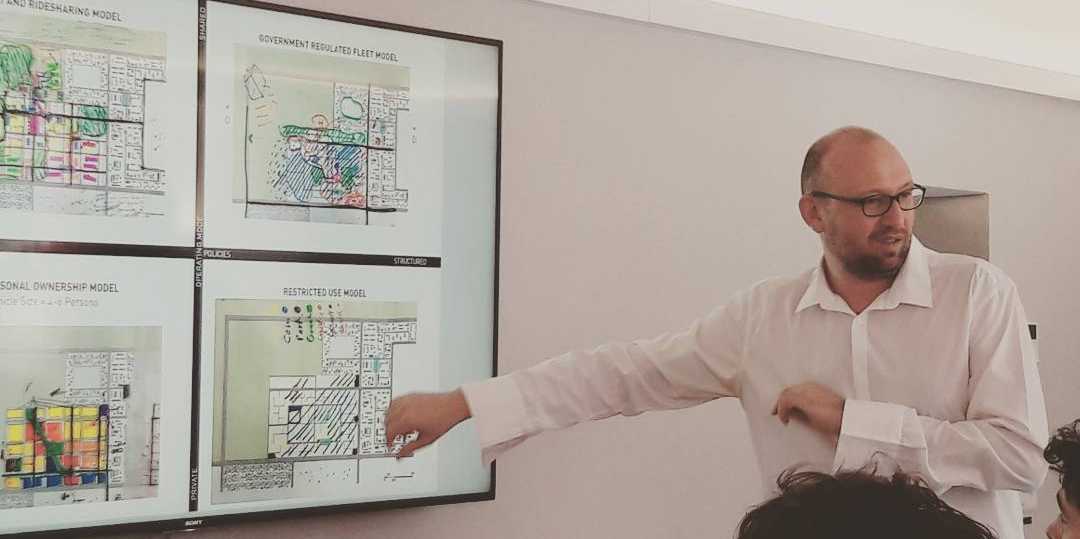Future challenges for mobility in highly urbanized systems
Pieter Fourie from the Future Cities Laboratory, ETH Singapore visited the ISTP on September 15th 2017 and spoke about future challenges for mobility in highly urbanized systems and how science and politics can deal with them.
by Michael Wicki

How can researchers interact with the industry and policy makers in a useful way? Current and future mobility challenges cannot be managed alone in an ivory tower. Therefore, the key to success is to work in an Open Source environment and engage with local stakeholders and communities. Interdisciplinary work provides the right tools to deal with the high level of specialized work and research environment by combining cutting edge technologies with state-of-the art methods in innovative research projects.
To show an actual example, Pieter Fourie started by presenting his work on Bike to the future initiative, where a digital peephole is set up into the future to test new possibilities in engaging people for street design and urban development projects. The technology combines 3D modelling and traffic simulation techniques in Virtual Reality to showcase how streets can be re-designed to make cycling and walking a more pleasant experience.
In the second part, the presentation and engaged discussion was shifted to questions like how we can deal with inaccuracies of transport models, which are widely used in science and in practice. This has a major impact especially on policies that are designed on the basis of the results of such models. For example, autonomous driving is interlinked with various fears which offer a flipside on every potential gain. But all this depends on the basic assumptions one makes.
Engaging diverse stakeholders to discuss and tackle these challenges has the potential to bring new insights and innovative ideas. For instance, a feasibility evaluation workshop on autonomous vehicle policies in Singapore was quickly turned into an interactive and fruitful discussion with the use of a scenario-based approach.
Pieter Fourie is a simulation modeler specializing in transportation. Previously he developed integrated transport/land-use models for decision support to South African metropolitan planning authorities at the South African Council of Scientific and industrial Research (CSIR). He is responsible for population synthesis and transport demand assignment for the agent-based transport demand model implemented at the Future Cities Laboratory.